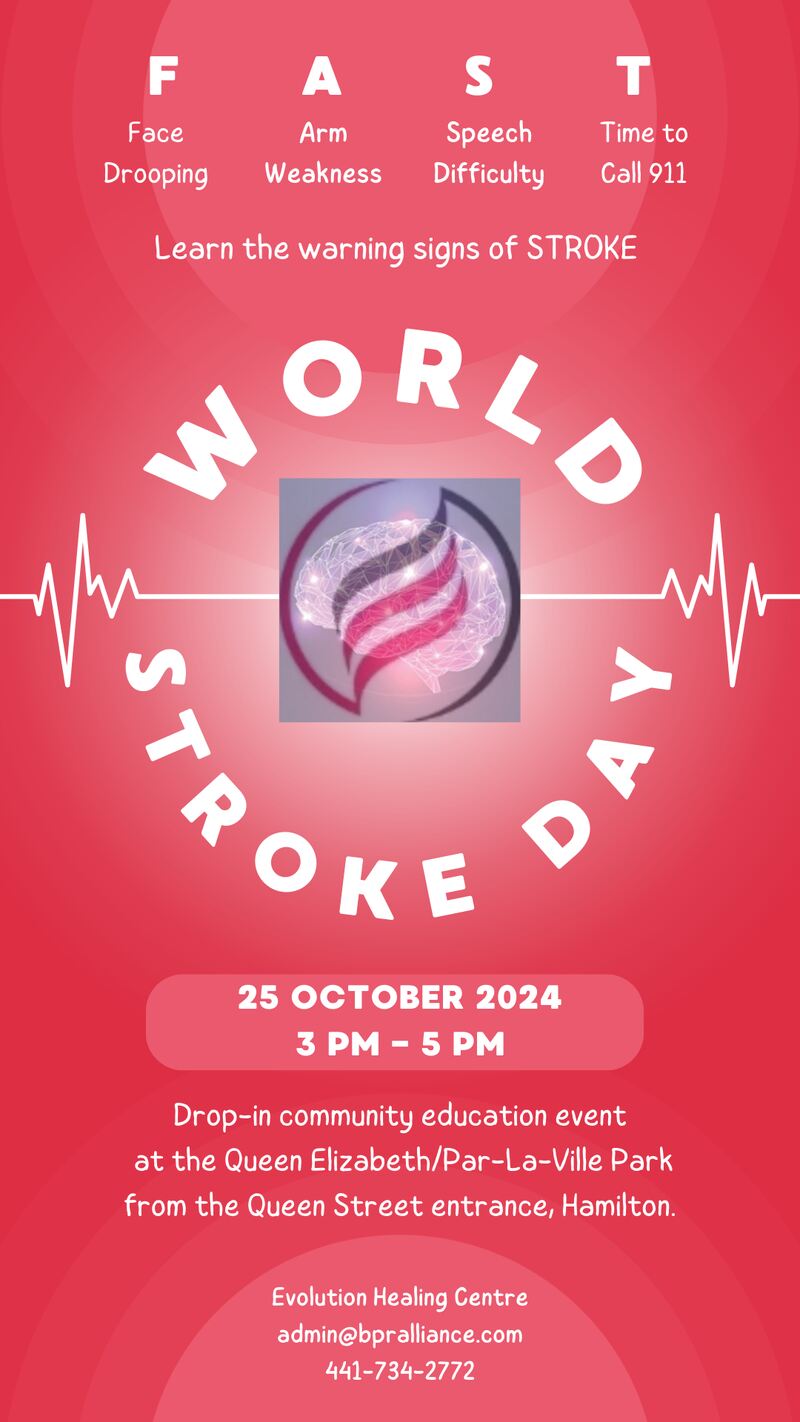Column: There Is Hope For Stroke Survivors
[Column written by Dr Kimberley Watkins]
World Stroke Day 2024 is an important opportunity to spread a message of hope and support for survivors in our community. Stroke is a leading cause of disability and death worldwide, and its impact can be devastating for individuals and their families. However, it’s crucial to emphasize that there is hope and life after a stroke, and that survivors can lead fulfilling and meaningful lives with the right support and resources.
The quotes included are from those who have experiences after a stroke.
“I am alive and this will not define me! Work a little each day towards achieving your goal.”
In Bermuda, we can support stroke survivors in a variety of ways. First and foremost, raising awareness about the signs and symptoms of stroke is crucial. The acronym FAST [Face drooping, Arm weakness, Speech difficulty, Time to call emergency services] is a simple way to remember the signs of a stroke and take quick action. By educating the community about the importance of recognizing these signs, we can ensure that stroke survivors receive timely medical attention, which can greatly improve their outcomes.
Another way to support stroke survivors is by advocating for better access to rehabilitation services and long-term care. Many survivors require ongoing therapy and support to regain their independence and quality of life. By advocating for improved access to these services, we can help survivors in their recovery journey and ensure that they can fully participate in our community.
“It is very true that a stroke most often costs two [or more] lives, not just one. Also, with no knowledge base to work with, pending institutionalization overseas was becoming a very possible outcome. However, after relentless pursuit of alternative options, we have been blessed to find a good team of local professionals, who between them all, are helping us rebuild a quality of life, one day at a time. It is true when they say the brain is the most incredible of all organs in the human body, with an ability to “re-wire” itself and build new neuro-pathways for functionality, even after catastrophic injury. It is however critically important to celebrate the small gains in recovery that come over time and with hard work, and for us, we are blessed to see how far we have come. Whilst almost a two-year journey for us now, this is relatively short in the overall scheme, and as many say to us “keep going.” Don’t quit; recovery for quality of life is possible, even if we have to adjust to a new world. Most importantly, maintaining motivation for all involved is a huge winning factor for the survival of everyone in the long run.”
It is also crucial to address the challenges faced by young stroke survivors, including their return to work. Many stroke survivors are of working age, and returning to work can be a significant milestone in their recovery. Employers and colleagues can play a key role in supporting stroke survivors by understanding the impact of their condition and providing necessary accommodations. It’s also important to recognize that many stroke survivors may be working past invisible disabilities, such as cognitive impairments or fatigue, which can affect their ability to work. By promoting understanding of these invisible disabilities and fostering a supportive work environment, we can help young stroke survivors successfully reintegrate into the workforce while simultaneously claiming their physical, mental, and emotional abilities back, and lead fulfilling lives.
Additionally, creating a supportive and inclusive environment for stroke survivors is important. This can involve simple acts of kindness, such as offering a helping hand or a friendly ear to listen. Building a community that is understanding and accommodating of the needs of stroke survivors can make a world of difference in their lives.
“Having the courage that something that was for you might not be for you now. Listen to yourself and your body. Do not feel rushed. When you feel like you have to stay where you are, that is where you fail.”
On World Stroke Day and beyond, let’s come together to spread a message of hope and support for stroke survivors in Bermuda. By raising awareness, advocating for better services, and fostering a compassionate community, we can make a positive impact in the lives of those affected by stroke.
“You are not what happened to you. You can either keep going or quit; both hurt. Recovery is not easy; it will take time, but it will get better with rehabilitation if you put in the hard work and be consistent. You are not where you were last month, and you will keep getting better if you keep pushing through, and that should bring you so much peace.”
- Dr Kimberley Watkins
Read More About
Category: All



